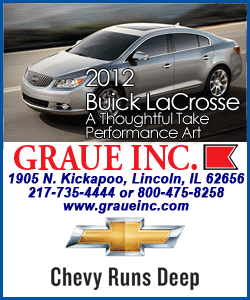 "Our partnership with Memorial Medical Center gives our
community around-the-clock access to stroke experts who work with us
to evaluate and administer the most effective and appropriate
treatments for people suffering from acute stroke," said Dolan
Dalpoas, president and CEO of ALMH. "Our partnership with Memorial Medical Center gives our
community around-the-clock access to stroke experts who work with us
to evaluate and administer the most effective and appropriate
treatments for people suffering from acute stroke," said Dolan
Dalpoas, president and CEO of ALMH.
"This means more people in our community will have access to
stroke-trained neurologists and may receive the lifesaving care they
need close to home, while other patients who need a higher level of
care can be identified and transferred to receive additional
treatments, including minimally invasive neurointerventional
procedures."
When a suspected stroke patient arrives at ALMH, the emergency
department staff will immediately begin executing evidenced-based
stroke protocols that contain a standardized neurological assessment
and diagnostic tests. Once a stroke is suspected, the emergency
physicians at ALMH will partner with stroke-trained neurologists at
Memorial Medical Center, using videoconferencing technology
installed in the emergency department at ALMH.

Using a secure Web camera video, the stroke neurologist performs
a quick assessment of the patient. Neuroimages taken at ALMH are
transmitted electronically to Memorial for a real-time consultation
with the stroke neurologist.
ALMH's clinical team and the stroke neurologist work together and
carry out the best treatment option for the patient, said Sajjad
Mueed, M.D., medical director of the Memorial Stroke Center and a
neurologist with SIU School of Medicine.
The vast majority of strokes are ischemic, which means an artery
to the brain is blocked. To treat the stroke, physicians must
restore blood flow to the brain as soon as possible.
"A clot-busting drug, called tPA, is effective at restoring blood
flow if it's administered within a few hours of the onset of the
stroke," Mueed said.
[to top of second column] |

In some stroke cases, patients will require a higher level of
care and can be quickly transferred to Memorial Medical Center,
which offers neurointerventional radiology services. Augusto Elias,
D.D.S., M.D., a neurointerventional radiologist with Clinical
Radiologists, based in Springfield, performs minimally invasive
interventional techniques to thread tiny catheters and wires through
a patient's blood vessels to eliminate clots and restore blood flow
to the brain.
Memorial Medical Center is certified as a primary stroke center
by The Joint Commission. The certification recognizes Memorial for
"exceptional efforts to foster better outcomes for stroke care,"
according to The Joint Commission. Primary stroke centers tailor
treatment to individual needs, adhere to national stroke guidelines
and continually assess and improve how care is delivered.
Memorial offers a collaborative, interdisciplinary approach to
stroke care with an integrated program that addresses the complete
spectrum of care from prevention to rehabilitation, said Teresa
Reiser, Memorial Medical Center's director of neuromuscular
sciences.
Memorial's rehabilitation facilities are among only a handful
worldwide to hold a fivefold accreditation from the Commission on
Accreditation of Rehabilitation Facilities, including accreditation
for its stroke specialty program.
[Text from file received from
Memorial Medical Center]
 |